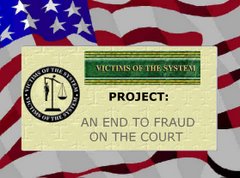Eleventh Circuit Court of Appeals Opinion
IN THE UNITED STATES COURT OF APPEALS
FOR THE ELEVENTH CIRCUIT
________________________
No. 08-11286
Non-Argument Calendar
________________________
D. C. Docket No. 07-60770-CV-CMA
BKCY No. 97-25645-BKC-PG
In Re: BARON'S STORES, INC., Debtor.
_________________________________________
BARON'S STORES, INC.,
NORMAN LANSON,
MERYL LANSON,
Plaintiffs-Appellants,
versus
MARK COOPER,
COOPER & WOLF,
RONALD C. KOPPLOW,
KOPPLOW & FLYNN,
SONYA SALKIN, et al.,
Defendants-Appellees.
________________________
Appeal from the United States District Court
for the Southern District of Florida
_________________________
(January 15, 2009)
Before CARNES, BARKETT and WILSON, Circuit Judges.
PER CURIAM:
Meryl M. Lanson and Norman Lanson ( the “Lansons”), proceeding pro se,and Baron’s Stores, Inc. (“Baron’s”), appeal the district court’s order, affirming the bankruptcy court’s decision finding that attorneys Marc Cooper, Ronald Kopplow, and Sonya Salkin (collectively “the attorneys”), who worked on behalf of Baron’s during its bankruptcy proceedings, did not perpetrate a fraud on the bankruptcy court.
We examine independently the factual and legal determinations of the bankruptcy court, employing the same standards of review as the district court. In re Issac Leaseco, Inc., 389 F.3d 1205, 1209 (11th Cir. 2004). We review the bankruptcy court’s factual findings for clear error and all questions of law de novo.
In re Int’l Admin. Servs., Inc., 408 F.3d 689, 698 (11th Cir. 2005). For a factual finding to be clearly erroneous, we, “after reviewing all of the evidence, must be left with a definite and firm conviction that a mistake has been committed.” United States v. Rodriguez-Lopez, 363 F.3d 1134, 1137 (11th Cir. 2004) (quotation omitted).
“Fraud on the court must involve an unconscionable plan or scheme which is designed to improperly influence the court in its decision . . . .” Davenport Recycling Assocs. v. C.I.R., 220 F.3d 1255, 1262 (11th Cir. 2000) (alleged fraud on tax court). “It has been found only in those instances where the fraud vitiates
the court’s ability to reach an impartial disposition of the case before it.” Id. Upon review of the record, and upon consideration of the briefs of the parties, we discern no reversible error. To the extent that the movants challenge the legal finding, the bankruptcy court did not err in finding that, to demonstrate
the perpetration of fraud on the court, Baron’s and the Lansons must have demonstrated an intentional scheme to perpetrate a fraud. Our law requires the demonstration of a “plan or scheme . . . designed” to improperly influence the court, which indicates that scienter is required. Moreover, to the extent that the movants contend that recklessness satisfies this requirement, they did not raise the argument before the bankruptcy court, and they do not develop it on appeal. Accordingly, we do not consider this argument. See Narey, 32 F.3d at 1526-27; Horsley, 304 F.3d at 1131 n.1.
The bankruptcy court’s factual finding, that the attorneys did not intend at any point to mislead or defraud the court, is supported by the evidence, and the movants have not demonstrated that this finding and accompanying credibility determinations were clearly erroneous. Looking at all of the evidence, one is not left with a definite and firm conviction that the bankruptcy court committed a mistake in finding no deliberate scheme designed to improperly influence the court.
Because the Lansons and Baron’s have not demonstrated that the bankruptcy court clearly erred in finding that the attorneys were credible and not involved in a plan or scheme designed to improperly influence the court in its decision, we affirm the district court’s decision affirming the bankruptcy court.
AFFIRMED.

1 comment:
Way cool! Some very valid points! I appreciate you penning this post and the rest of
the site is extremely good.
my site: how To file bankruptcy in florida
Post a Comment